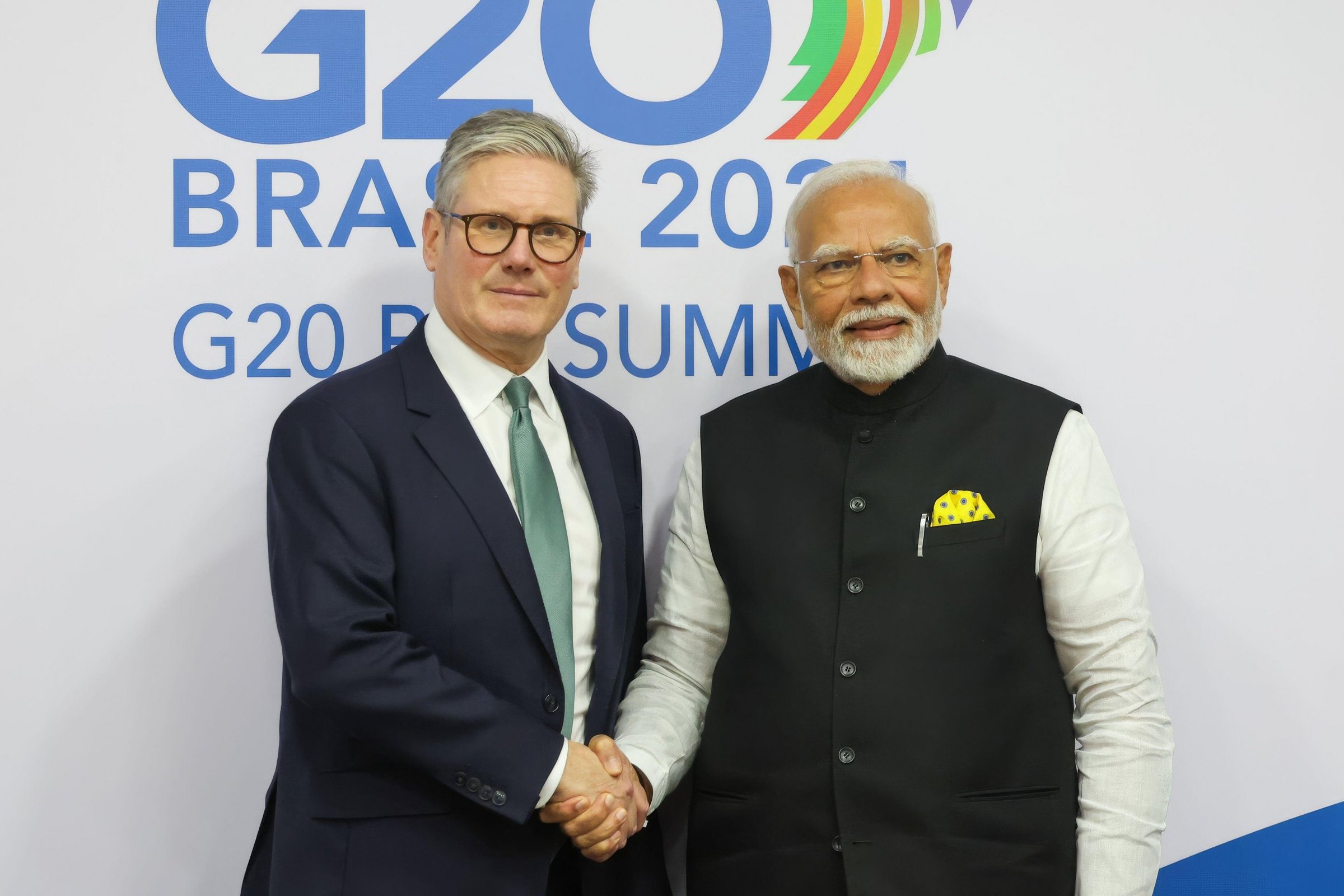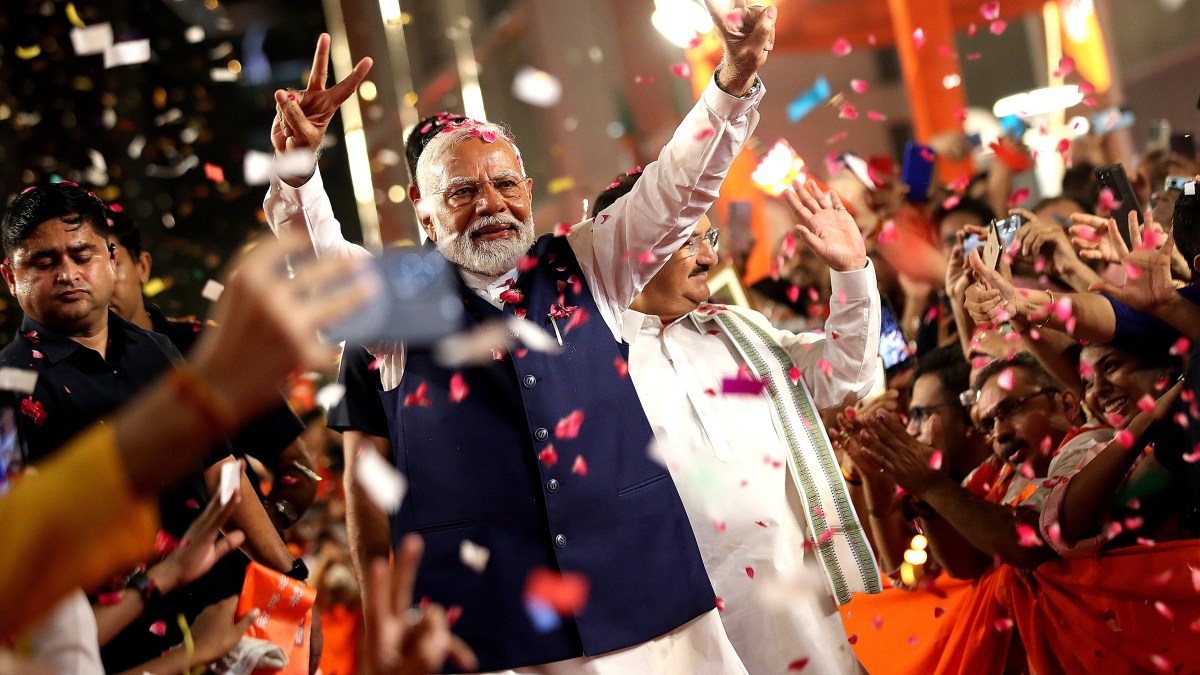Britain has struck a £5 billion-a-year free-trade agreement with India after offering a controversial tax break to Indian workers and companies.
The agreement, which is the biggest involving trade since Brexit, will result in Indian taxes on British exports such as whisky and cars falling by up to 90 per cent.
But to reach the agreement ministers conceded to demands to exempt Indian workers and companies from paying national insurance contributions for up to three years on staff seconded to the UK.
The Indian government said the move would result in “significant financial gains” for Indian companies, which would “enhance their competitiveness in the UK market” and “benefit large numbers of Indians working in the UK”.
The Tories accused Sir Keir Starmer of signing up to a “two-tier tax system” by raising taxes for British businesses while giving an exemption to Indian migrants.
Nigel Farage, the Reform leader, claimed the deal was a “betrayal” of British workers, because it would mean that employing Indian workers in the UK was 20 per cent cheaper.

The British whisky industry will benefit
LEON HARRIS/GETTY IMAGES
However, ministers defended the concession, which is expected to cost the Treasury more than £100 million, saying it had been “considered as part of the balance of the deal”. They added that the deal was similar to agreements that the UK had with other countries, including Europe and the United States, and would also benefit British workers in India.
Under the terms of the agreement India has agreed to reduce taxes on 90 per cent of British exports — with 85 per cent of these becoming tariff-free within a decade. Whisky and gin tariffs will be halved to 75 per cent before dropping to 40 per cent by year ten of the deal.
Automotive tariffs will fall from more than 100 per cent to 10 per cent under a new quota system, and taxes will also be cut on exports of medical devices, aircraft parts and machinery.

Textiles from India will enjoy reduced tariffs
SANJAY KANOJIA/NURPHOTO/GETTY IMAGES
This will reduce tariff costs to UK business by £400 million when the deal comes into force, a figure that will more than double to about £900 million after ten years.
In return the UK has cut tariffs on Indian imports including clothes, shoes and some food products, which ministers said would give consumers “cheaper prices and more choice”.
Government sources said the deal would also give UK service firms greater access to Indian markets, including some government procurement. It will liberalise customs procedures and rules of origin, allowing goods assembled in the UK to benefit from lower rates of tax.
What’s in it for the UKIndia will remove or reduce tariffs on 92 per cent of UK goods exports.Gin and whisky exports will see tariffs fall from 150 per cent to 40 per cent. Luxury car tariffs will fall from 100 per cent to ten per cent.UK food and drink, such as chocolate, salmon, biscuits and lamb, will not pay any tariffs.Zero tariff will also apply to machinery, medical devices and auto parts.UK firms will also be granted access to around 40,000 Indian procurement contracts with a value of at least £38 billion a year.
Overall, the government estimates the deal will boost Britain’s economy by 0.1 per cent by 2040. Its impact on growth could be equivalent to the recent trade deals with Australia, Japan and New Zealand combined.
The agreement was signed following a call between Starmer and Narendra Modi, the Indian prime minister, and is due to come into effect within the next 12 months.
Starmer described the announcement as a “historic day for the United Kingdom and for India”. He added: “This is the biggest trade deal that we have done since we left the EU, and it’s the most ambitious trade deal that India has ever done. This will be measured in billions of pounds into our economy and jobs across the whole of the United Kingdom.”

The UK is to slash tariffs on Indian textile imports
ERIC LAFFORGUE/ART IN ALL OF US/CORBIS/GETTY IMAGES
Modi said the “landmark agreement” would “further deepen our comprehensive strategic partnership, and catalyse trade, investment, growth, job creation, and innovation in both our economies”.
The move was broadly welcomed by business. The Confederation of British Industry said ministers should be commended for delivering a trade deal that “safeguards our national interests, protects high standards, and delivers market access for UK firms”.
What’s in it for IndiaAlmost 100 per cent of Indian exports to the UK will pay zero tariffs.Textiles, footwear, toys, and jewellery will all be exempt from tariffs which are as high as 6 per cent.The UK is also removing some so-called non-tariff barriers to Indian exports that make it harder for Indian firms to sell goods in the UK.Indian workers will no longer have to pay national insurance contributions for up to three years while in the UK.
However, it was attacked by the Tories — who vetoed a similar deal when they were in power because of India’s demands on national insurance.
“This is two-tier taxes from two-tier Keir,” said the party leader, Kemi Badenoch, a former trade secretary. “I refused to sign this deal because of tax refunds for Indians not available to us, visa requests too high, [and the] ceramics and aluminium industries would be screwed … When Labour negotiates Britain loses.”
Farage said: “This government does not give a damn about working people. That’s why people voted for us last Thursday. But the government doesn’t seem to understand.”
But Jonathan Reynolds, the business secretary, said the agreement was similar to that which Britain had with 17 other countries. “What it is about is making sure when people are inter-company transfers between the UK and India they don’t simultaneously pay into both social security systems,” he said.

Starmer and Narendra Modi at the G20 in Rio de Janeiro last year
HEMANT JOSHI/ALAMY
He added that Indian workers would still be paying income tax and the NHS health surcharge.
Martin Muhleder, a partner at the immigration services firm Vialto Partners, said that government figures showed that about 20,000 Indian workers who came to the UK on company transfers each year could benefit from the tax changes.
“This will help firms where the kind of specialist staff they need for particular projects are not available in the UK but taken in round it will not provide them with savings because of the other costs associated with such transfers,” he said.
Meanwhile, ministers are also increasingly optimistic that a deal with the US is imminent, with talks intensifying in recent days. The UK is attempting to reduce tariffs on the export of British cars and steel, which have been hit by a 25 per cent levy by Trump.
